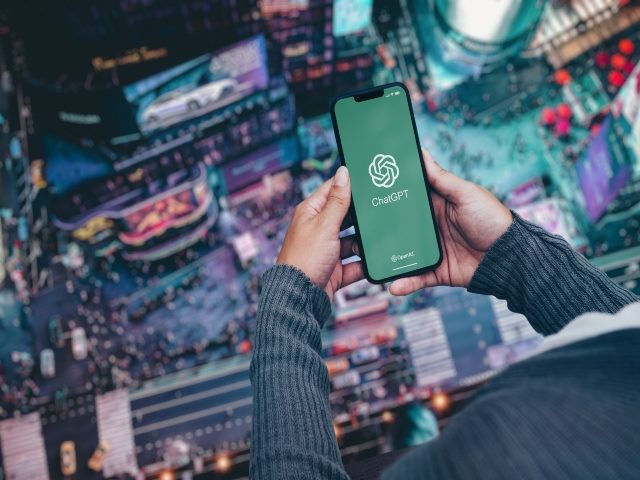The Gist
- AI app bazaar. OpenAI explores creating a marketplace for AI apps tailored to customer experience and marketing needs.
- Chatbot marketplace expansion. OpenAI's potential app store could offer tailored chatbots for specific industries.
- Competition on the horizon. OpenAI's marketplace may challenge existing platforms like HubSpot and Salesforce.
OpenAI is exploring the concept of an AI app store that would provide customer experience and marketing professionals with access to a marketplace of artificial intelligence apps — developed by external companies and built on top of OpenAI's own AI technology.
Purportedly, the store would provide companies with a veritable bazaar to buy and sell tailored chatbots, catering to specific industry needs — and would be offered in addition to the plug-ins OpenAI already offers enterprise users.
The potential plans were leaked during a private developer meeting in London last month, where OpenAI CEO Sam Altman allegedly stated that he’s contemplating the idea of establishing a marketplace for community contributed models in the future. If realized, OpenAI's potential marketplace could present significant competition to established marketplaces such as HubSpot, Salesforce and Microsoft.
According to The Information, two of OpenAI's customers, Aquant and Khan Academy, are potentially interested in making their ChatGPT-powered AI models available on OpenAI's marketplace.
OpenAI did not immediately respond to a CMSWire’s request for comment.
Related Article: OpenAI's ChatGPT and Whisper APIs Now Available to Developers
AI's Open Secret: Altman's World Tour Reveals Roadmap Amidst GPU Crunch
Recently, Altman has been journeying across the globe. His mission: to shape the final structure of the EU's AI regulations by engaging in a series of high-profile meetings with governmental leaders from Spain, Poland, France and the UK. Yet, behind the scenes, he's been equally busy.
On a trip to London in May, Altman convened a private gathering with a select group of developers and startup pioneers, offering them an exclusive glimpse into OpenAI's strategic blueprint and the challenges that lie ahead. However, the veil of this private meeting was lifted when one of the attendees, Raza Habib, co-founder and CEO of Humanloop, decided to publicly share his account of the event through a blog post. The post was subsequently removed — but not before being posted to an internet archival site.
According to Habib, Altman said he was “considering hosting a marketplace for community contributed models in the future.”
During the discussion, Habib said Altman was “remarkably open”— revealing the biggest customer complaint is the reliability and speed of the API and said OpenAI’s biggest challenge is a significant shortage of Graphics Processing Units (GPUs). Apparently, the scarcity is hampering the company's short-term plans and impacting the reliability and speed of its API. According to Habib, this issue also affects the rollout of a longer 32K context to more people and the performance of the fine-tuning API, both of which require substantial computational resources. For those who want a private copy of the model with a dedicated capacity, it will cost $100,000.
Is Altman Promising More Bang for Your GPT-4 Buck in 2023?
Despite the obstacles, Habib said Altman disclosed some significant developments on the near-term roadmap.
For 2023, the company's top priority is to make GPT-4 cheaper and faster, with the broader goal of reducing the cost of intelligence. It is also aiming to enable longer context windows, possibly up to 1 million tokens and expand the fine-tuning API based on developers' needs. There is also a plan to introduce a stateful API that will remember conversation history, eliminating the need to repeatedly pass through and pay for the same information. In 2024, the company plans to introduce multimodality, an enhancement that's been demoed but can't be fully implemented until more GPUs are available.
Habib also shared news that the release of plugins for ChatGPT via the API is unlikely to happen soon, as they currently lack a clear Product-Market Fit (PMF) outside of the browsing plugin — with Altman suggesting “that a lot of people thought they wanted their apps to be inside ChatGPT but what they really wanted was ChatGPT in their apps.”
